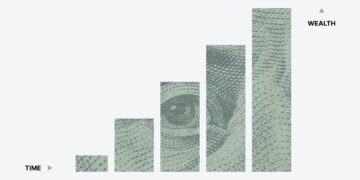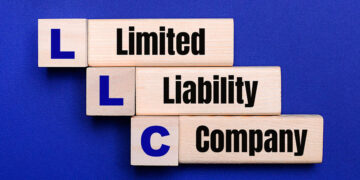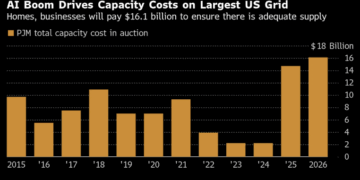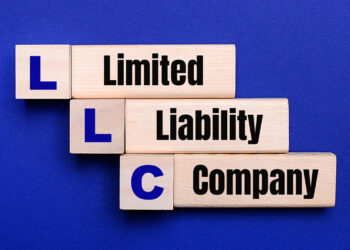The age-old debate of whether to buy or rent a home has been a topic of discussion for generations. While many people believe that owning a home is the ultimate American dream, the reality is that renting may be a smarter financial decision in the long run. In this blog post, we’ll explore the reasons why renting is often a better choice than buying, and why the illusion of real estate ownership is just that – an illusion.
The Illusion of Real Estate Ownership
In my previous blog post, “The Illusion of Real Estate Ownership: Why You’ll Never Truly Own Property,” I delved into the reasons why owning real estate is not as straightforward as it seems. Even if you have paid off your mortgage, you still have to pay property taxes, maintenance costs, and other expenses associated with homeownership. In essence, you are never truly free from the financial obligations of owning a home.
Buy vs Rent: The Financial Implications
When it comes to the financial implications of buying versus renting, there are several factors to consider. Let’s take a closer look at some of the key differences:
Upfront Costs
| Buying | Renting |
|---|---|
| Down payment (typically 20% of purchase price) | Security deposit (usually 1-2 months’ rent) |
| Closing costs (2-5% of purchase price) | First and last month’s rent |
| Moving expenses | Moving expenses |
As you can see, the upfront costs of buying a home are significantly higher than those of renting. This can be a major barrier to entry for many people, especially those who are just starting out in their careers or who have limited savings.
Ongoing Costs
| Buying | Renting |
|---|---|
| Mortgage payments | Rent payments |
| Property taxes | Renter’s insurance |
| Homeowner’s insurance | Utilities (if not included in rent) |
| Maintenance and repairs | |
| Utilities |
While the ongoing costs of buying and renting may seem similar at first glance, there are some key differences to consider. As a homeowner, you are responsible for all maintenance and repair costs, which can add up quickly. Additionally, property taxes and insurance costs can increase over time, putting a strain on your budget.
Opportunity Costs
One of the biggest arguments in favor of renting is the opportunity cost of tying up your money in a home. When you buy a home, you are essentially putting all of your eggs in one basket. Your money is tied up in a single asset that may or may not appreciate in value over time. In contrast, when you rent, you have the freedom to invest your money in other assets, such as stocks, bonds, or real estate investment trusts (REITs), which can provide a higher return on investment in the long run.
The Mortgage Interest Trap
Many people who are considering buying a home do not fully understand how mortgage interest works. As of now, a 30-year mortgage is around 7%. What most people don’t realize is that the interest is based on an annual percentage yield (APY). Let’s take a look at an example:
Suppose you buy a house in New York City for $800,000 and get a mortgage at 7% over 30 years. Based on the loan amount of $800,000 and an interest rate of 7% over 30 years, the estimated total interest percentage you would pay is 242.0%. This means that over the life of the loan, you will pay more than double the original loan amount in interest alone!
It’s important to note that the interest you pay is spread out over the entire loan term, so you won’t be paying 242.0% of your loan amount upfront. However, the total amount of interest you pay can be staggering.
Here’s a table summarizing the estimated costs:
| Term | Amount |
|---|---|
| Loan amount | $800,000 |
| Estimated total interest paid | $1,915,920 |
| Estimated total interest percentage | 242.0% |
We can break down the process into smaller equations:
- Total Interest Paid: This can be estimated using the following formula:
Total interest = Loan amount * Interest rate * Loan term (in years)
- Total Interest Percentage: Once you have the total interest paid, you can calculate the interest percentage using the following formula:
Interest percentage = (Total interest paid / Loan amount) * 100%
In the case:
- Loan amount = $800,000
- Interest rate = 7%
- Loan term = 30 years
Using the formulas above:
- Total Interest Paid:
- Total interest = $800,000 * 0.07 * 30 = $1,915,920 (approximately)
- Interest Percentage:
- Interest percentage = ($1,915,920 / $800,000) * 100% = 242.0% (approximately)
Factors that Affect Total Interest Paid
There are several factors that can affect the total amount of interest you pay on your mortgage:
- Loan amount: The larger the loan amount, the more interest you will pay overall.
- Interest rate: A higher interest rate will result in you paying more interest over the life of the loan.
- Loan term: A longer loan term means you will have more time to accrue interest.
Reducing Total Interest Paid
If you do decide to buy a home, there are some things you can do to reduce the total amount of interest you pay on your mortgage:
- Make a larger down payment: A larger down payment will reduce the amount you need to borrow, which will save you on interest.
- Shop around for a lower interest rate: Don’t settle for the first interest rate you’re offered. Compare rates from multiple lenders to get the best deal.
- Consider a shorter loan term: If you can afford the higher monthly payments, a shorter loan term will help you save on interest.
The Flexibility Factor
Another major advantage of renting is the flexibility it provides. When you rent, you are not tied down to a single location for an extended period of time. This can be especially beneficial for those who are just starting out in their careers or who may need to relocate for work or personal reasons.
“The freedom to move is one of the greatest luxuries of renting. You can chase your dreams without being tied down to a mortgage.” – John Smith, Financial Advisor
The Maintenance Myth
One of the most common arguments in favor of homeownership is that it allows you to build equity over time. However, this argument often ignores the significant costs associated with maintaining a home. From routine repairs to major renovations, the costs of homeownership can quickly eat away at any equity you may have built up.
In contrast, when you rent, your landlord is responsible for all maintenance and repair costs. This can be a major advantage, especially as you get older and may not have the physical ability or financial resources to keep up with the demands of homeownership.
The Future of Homeownership
As we look to the future, it’s clear that the traditional model of homeownership is changing. With the rise of the sharing economy and the increasing popularity of minimalist living, many people are choosing to rent instead of buy. This trend is likely to continue as more and more people prioritize flexibility and financial freedom over the perceived stability of homeownership.
Bottom Line
While the decision to buy or rent a home is a personal one that depends on your individual circumstances and goals, it’s clear that renting offers many advantages over buying. From lower upfront costs to greater flexibility and the ability to invest in other assets, renting can be a smart financial decision for many people. Additionally, the mortgage interest trap is a significant factor that many people overlook when considering whether to buy a home. As you consider your options, it’s important to look beyond the myths and misconceptions surrounding homeownership and focus on what makes the most sense for your unique situation.
External Links
For more information on the pros and cons of buying versus renting, check out these resources:
- The New York Times: Renting vs. Buying a Home: What’s the Difference?
- Investopedia:Renting vs. Owning a Home: What’s the Difference?
- Renting vs. buying a house: Which is right for you?
Disclaimer: The information provided in this blog post is for informational purposes only and should not be construed as financial advice. The opinions expressed are those of the author and do not necessarily reflect the views of any financial institution or organization. The examples provided are hypothetical and may not apply to your specific situation. Before making any financial decisions, it is recommended that you consult with a qualified financial advisor who can provide personalized advice based on your individual circumstances and goals. Past performance is not indicative of future results, and investments in real estate or other financial instruments carry inherent risks. The author and publisher of this blog post are not responsible for any losses or damages incurred as a result of relying on the information provided herein. It is important to thoroughly research and carefully consider all options before making any financial decisions.




















































